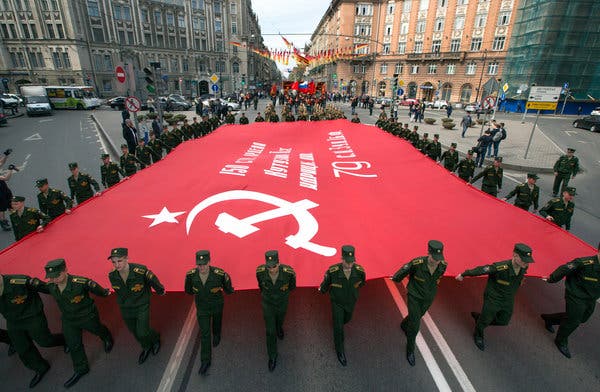
Claims that glorification of Soviet Russia’s role in victory over Nazis is part of “official propaganda.”
On May 9, 2021, Russians celebrated Victory in Europe (V-E) Day with a customary parade honoring the sacrifices of the Soviet people in World War II.
Rather than reporting on the day’s festivities, The Washington Post ran a story by its Moscow bureau chief, Robyn Dixon, about a Russian man who has spent years digging into archives to find out who killed his great-grandfather in 1938 during purges led by Soviet ruler Joseph Stalin.

Noting that “digging up the truth from the past can still bring trouble in today’s Russia,” Dixon wrote that, under current Russian President Vladimir Putin, “official propaganda has sought to glorify Russia as a victim of foreign aggression that saved the world in World War II, meanwhile playing down the horrors of Soviet massacres and repressions including the ‘Great Terror’ that Stalin led in the 1930s.”[1]
Dixon’s remarks represent historical revisionism at its worst; whatever the truth about the latter claim, Russia was a victim of foreign aggression and did save the world from Nazism in World War II.
Historians estimate that 26 million Russians were killed fighting the Nazis, while 1,710 Russian cities and 70,000 towns and villages were destroyed, along with 31,850 factories, 84,000 schools, 65,000 kilometers of railway and 1,974 collective farms.
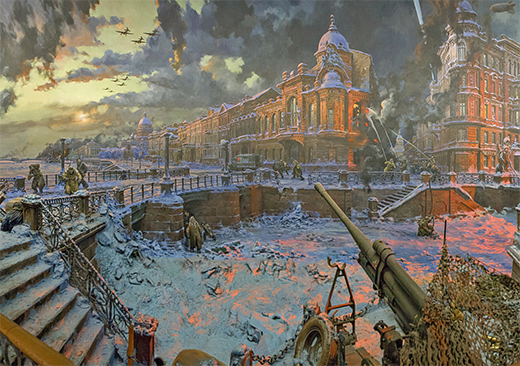
The Soviet Red Army destroyed 507 German divisions and 100 allied Axis divisions, 77,000 enemy planes, and 48,000 enemy tanks and armored vehicles. It further accounted for between 75 and 80 percent of Axis casualties in World War II, killing at least 10 million German soldiers.[2]
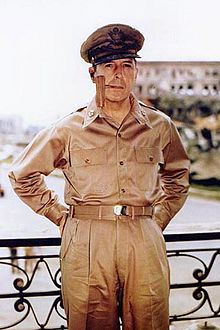
General Douglas MacArthur stated that in none of the many wars he had participated in had he observed “such an effective resistance to the heaviest blows of a hitherto undefeated enemy, followed by a smashing counterattack which is driving the enemy back to his own land. The scale and grandeur of this effort marks it as the greatest military achievement in all of history.”[3]
U.S. President Franklin Roosevelt and British Prime minister Winston Churchill also acknowledged the Soviet Union’s “gigantic effort” in fighting and ultimately defeating Hitler’s Germany.[4]
Churchill wrote in a letter to Stalin on September 27, 1944, that “it is the Russian army that tore the guts out of the German military machine.” Roosevelt in a fireside chat told the American public two years earlier that “these Russian forces have destroyed and are destroying more armed power of our enemies—troops, planes, tanks and guns—than all the other united nations put together.”[5]
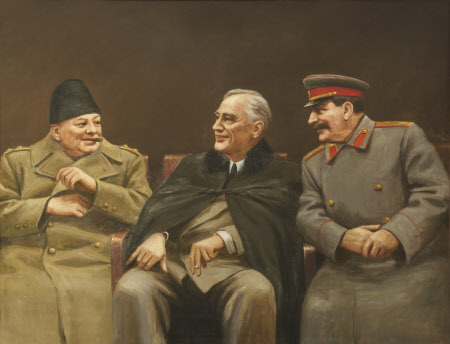
A generation later, President John F. Kennedy, in a speech at the American University in Washington, D.C., on June 10, 1963, five months before his assassination, stated that “no nation in the history of battle has every suffered more than the Russians suffered in the course of World War II. At least twenty million lost their lives. Countless millions of homes and farms were burned or sacked. A third of the nation’s territory, including nearly two-thirds of its industrial base, were turned into a wasteland.”[6]

But Robyn Dixon and The Washington Post would like us to believe that it is propaganda for Putin to highlight Russia’s role as a victim of foreign aggression and engine of Nazism’s defeat.
Never mind that historians consider the August 1942-February 1943 Battle of Stalingrad the decisive turning point in World War II.[7]
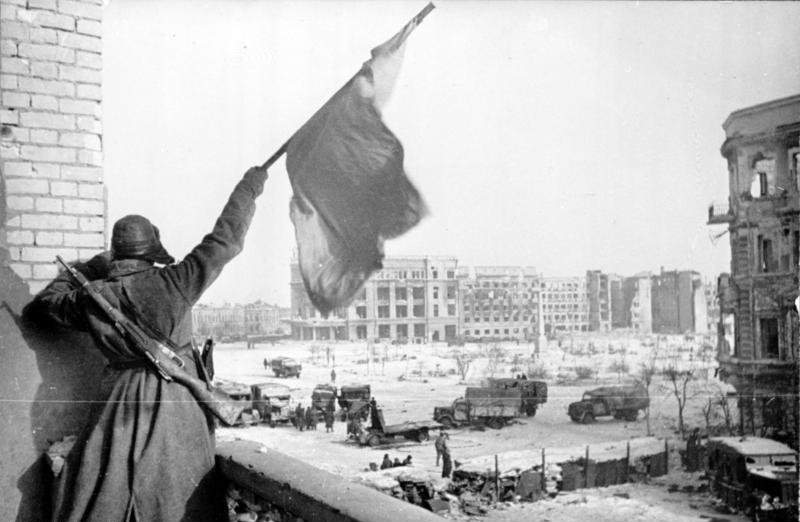
Or that it was Russian Red Army troops that liberated many of the concentration camps where Jews were systemically slaughtered, including Auschwitz.
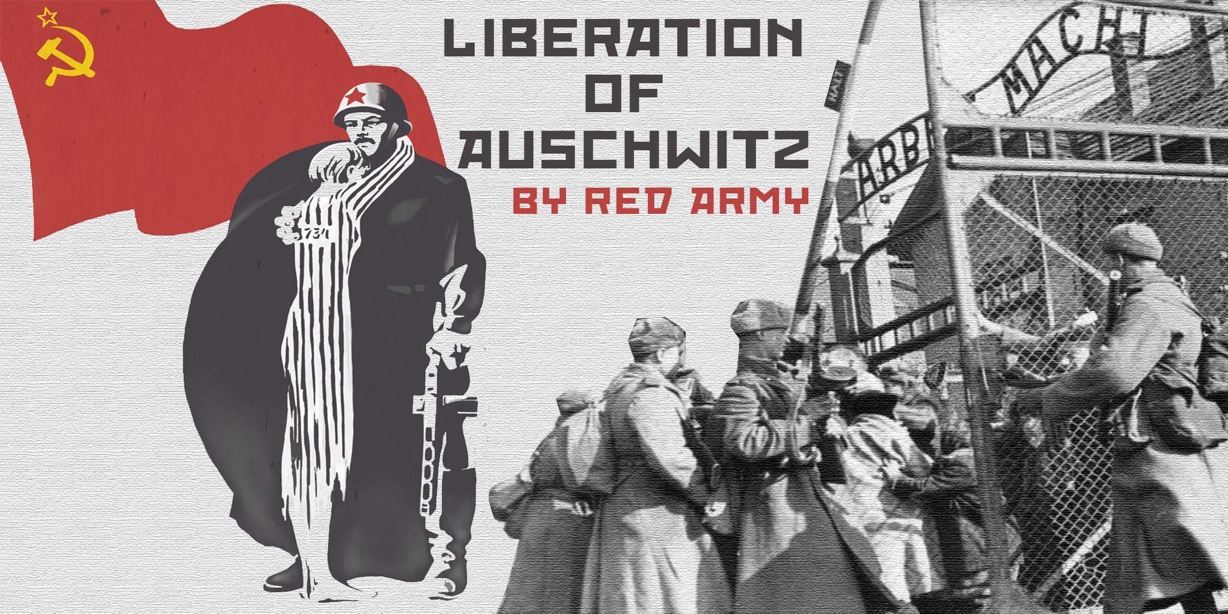
The New Republic at the time declared that “Hitler has lost the war, and for this the Russians deserve the major share of the credit.”[8]
New York Times correspondent Ralph Parker proclaimed that “it would need a Tolstoy to describe the heroic endurance of the men and women [successfully fighting the Nazis].”[9]
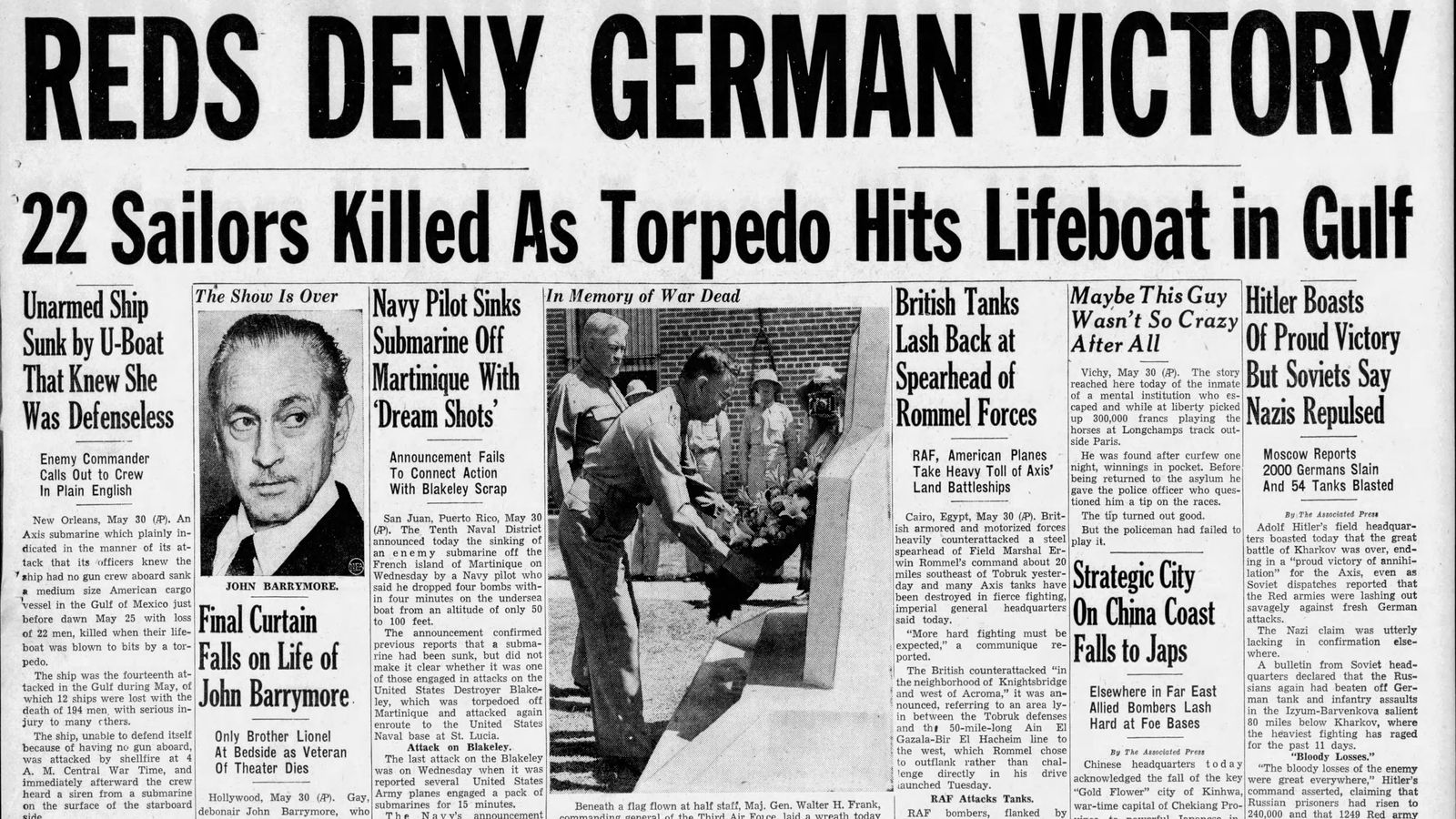
But this kind of reporting would be heresy today in the age of Russia-Gate and the new Cold War, where nothing positive can be said about Russia.
Dixon—a Loyal Foot Soldier in the New Cold War
Robyn Dixon is an Australian who won an Associated Press award for a series on terrorism that ignored its state-sponsored variety.

She has served as a loyal foot soldier in the anti-Russia, anti-Putin campaign, which was initiated because Russia has become stronger and more independent under Putin than under Boris Yeltsin in the 1990s.
Dixon’s articles on Russia are one-sided and biased.
She portrays Putin as an authoritarian leader bent on establishing a totalitarian surveillance state like China,[10] subverting sovereign countries and promoting militarism.[11]
She never mentions Russia’s positive economic transformation since the 1990s or from whom Putin draws his support.
In Syria, Dixon casts Russia as an aggressor bent on retaining two military bases (Hmeimim Air Base and the Tartus Naval Base), and which carried out war crimes in conjunction with Syrian leader Bashir al-Assad.[12]
No mention is made of the crimes committed by the jihadist rebels backed by the CIA, nor of the U.S. desire to control the oil resources and its establishment of 11 military bases in Syria.[13]
For Ukraine, Dixon depicts Russia again as the aggressor[14] without addressing Western support for the 2014 coup d’état which imposed a hostile regime on Russia’s border that wanted to join the North Atlantic Treaty Organization (NATO), and provoked the secession of two eastern Ukrainian provinces by imposing draconian language laws on them.[15]
For months, Dixon has reported favorably on Russian opposition leader Alexei Navalny—leaving out his anti-immigrant and other regressive views, and the fact that he has extremely limited support within Russia.[16]
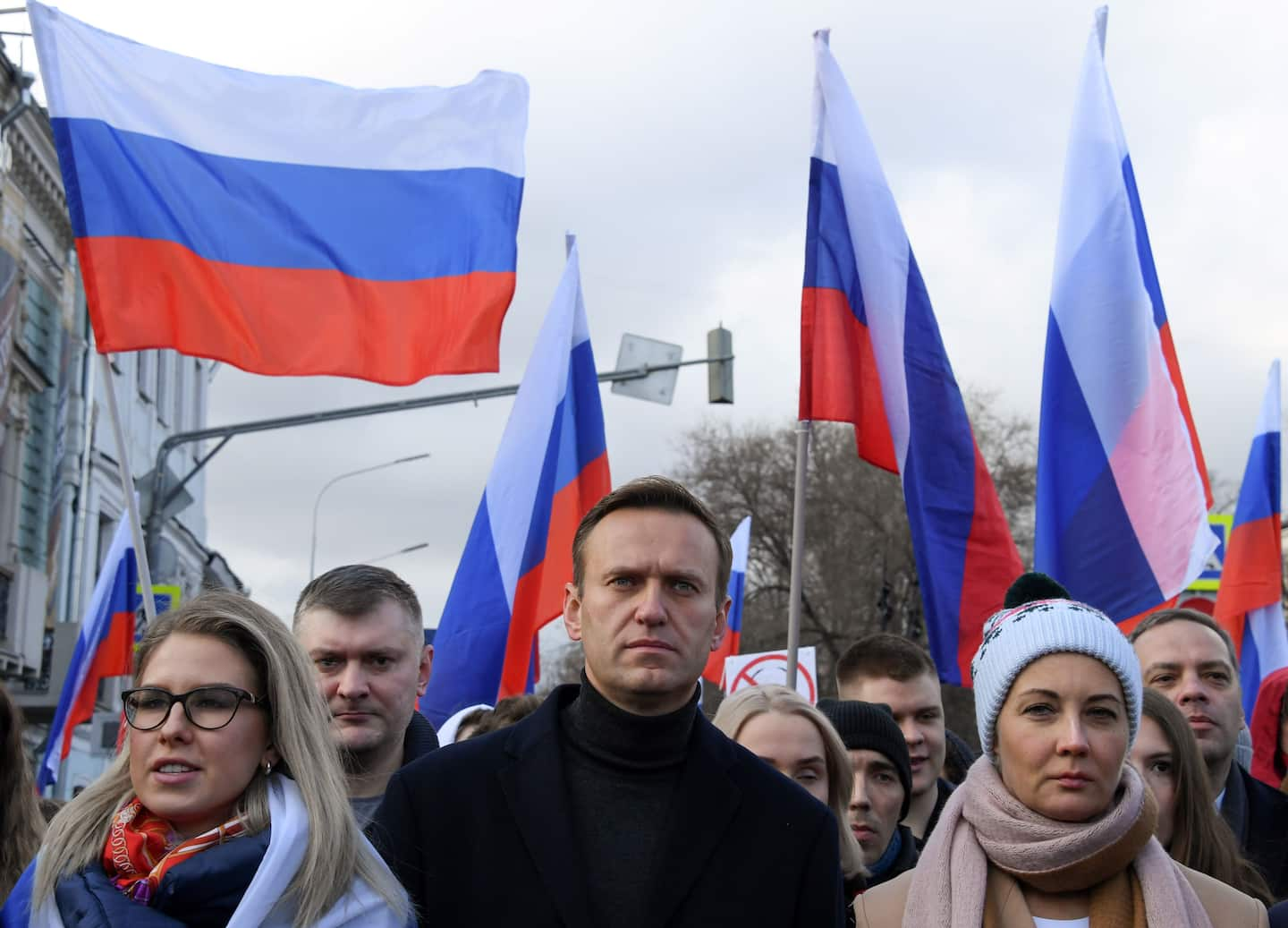
In a December 2020 article, Dixon reported uncritically on a Bellingcat report implicating Russia’s intelligence services in Navalny’s alleged poisoning.
She left out that Bellingcat is an adjunct of Western intelligence agencies and proved only that Navalny had been trailed by secret service agents.[17]
In another article, Dixon promoted CIA disinformation—first leaked to the New York Times –accusing a Russian military intelligence unit of paying bounties to Taliban-linked militias for killing U.S. soldiers in Afghanistan.[18]
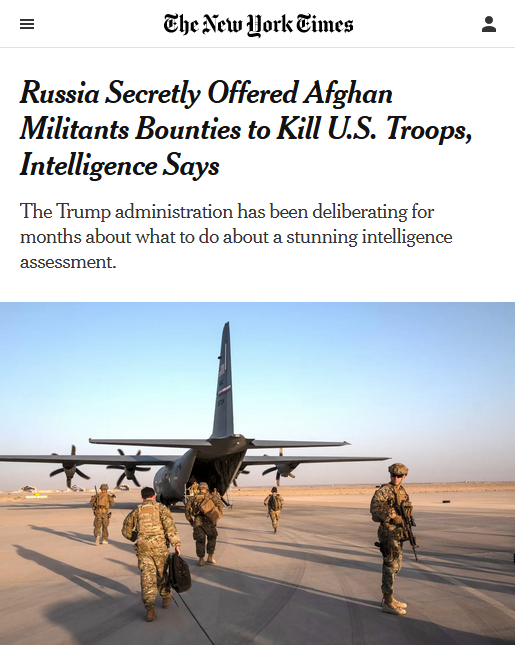
Dixon also accused Russia of setting off explosives at a weapons depot in Bulgaria and in the Czech Republic nearly a decade ago to disrupt Western flows of arms to Georgia and Ukraine.
She did not, however, report on allegations by Belarus President Alexander Lukashenko that he was a victim of a Western-backed coup and assassination plot.[19]
This is not surprising because Dixon has championed the anti-Lukashenko opposition and has caricatured Lukashenko as a tin-pot dictator[20] –ignoring how he had built a strong base of support by resisting Western-imposed shock therapy programs that resulted in record inequality levels throughout the region.[21]
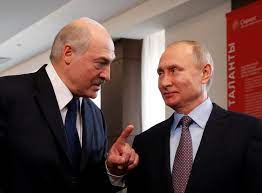
On April 28th, Dixon co-authored a front-page story entitled “Brazil Rejects Russian Vaccine, Citing Many ‘Flaws,’” which upheld the Brazilian health agency’s view that the Sputnik V COVID-19 vaccine lacked proper quality control, even though it had been hailed as safe and more than 91 percent effective in a peer-reviewed article in The Lancet in February.[22]
Dixon’s article was characteristic of a biased manner of reporting in which only negative things can be said about Russia, and Russia’s positive contributions—like development of a COVD-19 vaccine or defeat of Nazism in World War II—are dismissed.
One Positive Article
In surveying Dixon’s articles on Russia for The Washington Post, I came across one positive piece that provided a startling contrast to her V-E Day article from this year.
Published on August 5, 2020, the piece was titled “The last of Stalin’s female fliers.” It profiled Galina Brok-Beltsova, age 95, the last surviving member of Stalin’s three famous all-female air regiments, who took part in the 1945 Battle of Königsberg, which liberated Germany’s easternmost city from Nazi rule.
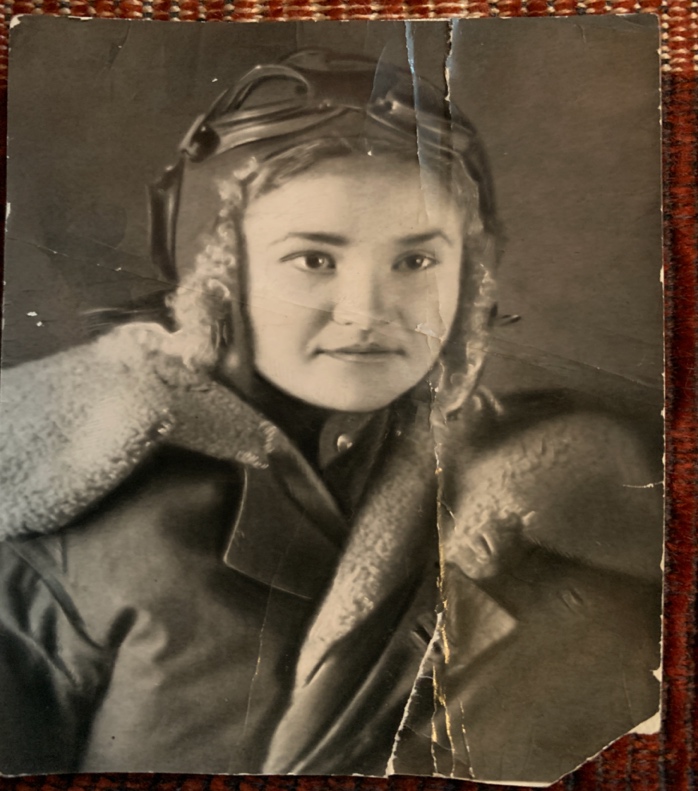
Dixon told the story in the article of how Brok-Beltsova signed up for the Red Army after coming out of a movie theater with her girlfriends and hearing an air-raid siren.
In basic training, she slept in “freezing, filthy stables” in preparation to “fight the invading Nazis,” meeting her husband of 60 years who was in charge of her training regimen.
Brok-Beltsova admitted that the Soviet Air Force decimated much of Königsberg but said that this was because the Germans had tried to “destroy us and occupied our villages and towns.”
After the war Brok-Beltsova became a history professor and spoke at military events where the young officers marveled at her courage.
On Victory Day in 2020, she was invited to a luncheon with Putin, though the festivities were canceled because of COVID-19. Dixon wrote that for Brok-Beltsova nevertheless, “Victory Day carries the same message of glory, triumph and grief it always has.”[23]
These latter comments contradict Dixon’s more recent remarks about Putin and propaganda surrounding World War II.
The Russian people clearly revere veterans like Brok-Beltsova whose heroism and sacrifices were genuine.
What the …?
The worst of Dixon’s reporting on Russia is unfortunately no anomaly at The Washington Post.
During the 2016 election, the Post led the way in accusing Russia of election interference and cyber-hacking absent concrete proof, and in 2020 insinuated that Bernie Sanders was a Russian asset based on the claims of anonymous intelligence sources notorious for advancing disinformation.

Since 2013, The Washington Post has been owned by Amazon CEO Jeff Bezos, a multibillionaire who signed a $600 million computing deal between the Central Intelligence Agency (CIA) and Amazon.

Bezos’s warm relationship with the CIA, combined with the Post’s reporting on Russia, indicates a pattern of continuity from the original Cold War when Carl Bernstein reported that more than 400 American journalists had “secretly carried out assignments for the CIA.”
Dixon may or may not herself be compromised but her reporting clearly serves the interests of the U.S. national security state, and has contributed to negative public attitudes toward Russia, which are lending support for the new Cold War.
A recent Gallup poll found that just 22% of U.S. citizens view Russia favorably, while 72% hold unfavorable views toward it.
Democrats—more prone to read the Post—hold particular hostility toward Russia, with fewer than one-in-six (16%) telling Gallup they maintained positive opinions about the country, as opposed to 25% of Republicans and 24% of independents.
These totals indicate a high level of social conditioning whose end result could be war.

-
Robyn Dixon, “He spent years uncovering the Stalin-era execution of his great-grandfather. Lawsuits seek to bury the evidence,” The Washington Post, May 9, 2021. ↑
-
Jacques Pauwels, The Myth of the Good War: America in the Second World War (Winnipeg: Lorimer, 2002), 91; Eric Margolis, “The Soviet Union Defeated Germany in World War II—Not the Western Forces,” The Unz Review, May 11, 2020, https://www.unz.com/emargolis/the-soviet-union-defeated-germany-in-world-war-ii-not-the-western-forces/ ↑
-
Quoted in D.F. Fleming, The Cold War and Its Origins, 1917-1960, vol. 1: 1917-1950 (New York: Doubleday & Co., 1961), 148. ↑
-
Margolis, “The Soviet Union Defeated Germany in World War II—Not the Western Forces.” Most Englanders after the war chose the USSR when asked which nation had done most to help win the war. Lawrence Wittner, Rebels Against War: The American Peace Movement, 1933-1983 (Philadelphia: Temple University Press, 1984), 103. ↑
-
Helga Zepp-Larouche, “Putin’s Discussion of the Second World War Can Prevent World War III,” June 26, 2020, http://www.nkibrics.ru/posts/show/5ef59a456272695143350000; Alexander Werth, Russia at War, 1941-1945: A History (New York: Carroll & Graf, 1964), xiv. Ernest Bevin, British Minister of Labor in the war-time government, acknowledged the “tremendous effort of the Soviet people,” noting that “our children’s children will look back, through their history books, with admiration and thanks for the heroism of the great Russian people.” ↑
-
Quoted in Werth, Russia at War, 1941-1945, xi. ↑
-
See Richard Overy, Why the Allies Won (New York: W.W. Norton, 1997). ↑
-
Overy, Why the Allies Won, 84; Werth, Russia at War, 1941-1945, 543; Maurice Isserman, Which Side Were You On? The American Communist Party during the Second World War (Urbana: University of Illinois Press, 1993), 158. ↑
-
Quoted in Oliver Stone and Peter Kuznick, The Untold History of the United States (New York: Gallery Books, 2012), 106. ↑
-
See for example Robyn Dixon, “Russia’s surveillance state still doesn’t match China. But Putin is racing to catch up,” The Washington Post, April 15, 2021; Dixon, “He spent years uncovering the Stalin-era execution of his great-grandfather;” Robyn Dixon, “Russia’s rush to ramp up surveillance state,” The Washington Post, April 18, 2021. ↑
-
Robyn Dixon, “Russia expands troops near Ukraine,” The Washington Post, April 20, 2021. ↑
-
Robyn Dixon, “Russia’s moves in Idlib part of wider strategy,” The Washington Post, February 14, 2020. ↑
-
See Tim Anderson, The Dirty War on Syria (Global Research, 2016); Bill Van Auken, “U.S. Stages Military Buildup to Steal Syria’s Oil,” World Socialist Web Site, August 25, 2020. ↑
-
Robyn Dixon, “Russia expands troops near Ukraine,” The Washington Post, April 20, 2021. ↑
-
For background, see Richard Sakwa, Frontline Ukraine: Crisis in the Borderlands (London: I.B. Tauris, 2016); Chris Kaspar de Ploeg, Ukraine in the Crossfire (Atlanta: Clarity Press Inc., 2017). ↑
-
Robyn Dixon, “Navalny lawyer is arrested after challenging secrecy in court case,” The Washington Post, April 30, 2021; Robyn Dixon, “Thin Navalny, in court by video, calls Putin a ‘naked king,” The Washington Post, April 29, 2021, Isabelle Khurshudyan, Robyn Dixon, “Putin critic is sent to prison for 32 months,” The Washington Post, February 2, 2021. ↑
- Isabelle Khurshudyan, Robyn Dixon, “Report implicates Kremlin in poisoning of Navalny,” The Washington Post, December 14, 2020. For critical review of the Navalny poisoning, see Jeremy Kuzmarov, “Is Russian Opposition Leader Alexey Navalny a Key Prop in a Psychological Warfare Operation Designed to Bring Down Vladimir Putin?” CovertAction Magazine, March 13, 2021; Max Blumenthal, “Reuters, BBC, and Bellingcat participated in covert UK Foreign Office-funded programs to ‘weaken Russia,’ leaked docs reveal,” The Grayzone Project, February 20, 2021.
- Robyn Dixon, “What’s behind Russia’s growing ties to the Taliban,” The Washington Post, June 30, 2020. For critical analysis, see Alan Macleod, “In ’Russian Bounty’ Story, Evidence-Free Claims From Nameless Spies Became Fact Overnight,” Fairness and Accuracy in Reporting, July 3, 2020, https://fair.org/home/in-russian-bounty-story-evidence-free-claims-from-nameless-spies-became-fact-overnight/. The New York Times, which originally reported the Russian bounty story, admitted later that evidence was lacking. Charlie Savage et al. “Russian Spy Team Left Traces That Bolstered C.I.A.’s Bounty Judgment: But the U.S. lacked ‘evidence that the Kremlin directed this operation,’ newly declassified information about the Russian team showed,” The New York Times, May 7, 2021.
-
Loveday Morris, Robyn Dixon, “Bulgaria points to Russia in arms depot blasts, widening European probes,” The Washington Post, April 28, 2021; Loveday Morris, Ladka Bauerova and Robyn Dixon, “Reverberations from Russian-Czech depot dispute grow,” The Washington Post, April 20, 2021; “Suspects in Lukashenko Assassination Plot Plead Guilty, Reveal Details of Conspiracy,” TASS, Russian News Agency, April 28, 2021. ↑
-
Robyn Dixon, “Belarus’s Lukashenko says he would rather be killed than allow new vote,” The Washington Post, August 17, 2020. Dixon claimed that Lukashenko had ruled Belarus since 1994 through “flawed elections, disregarding constitutional term limits, jailing critics and election rivals and cracking down on protests.” See also Robyn Dixon, “Belarus’s strongman opts for vodka over lockdowns,” The Washington Post, March 29, 2020. ↑
-
For a balanced and primarily positive assessment of Lukashenko, see Stewart Parker, The Last Soviet Republic: Alexander Lukashenko’s Belarus (London: Trafford Publishing, 2007). ↑
-
Erin Cunningham and Robyn Dixon, “Brazil rejects Russian vaccine, citing many ‘flaws,’” The Washington Post, April 28, 2021. ↑
-
Robyn Dixon, “The Last of Stalin’s Female Fliers,” The Washington Post, August 5, 2020. ↑
CovertAction Magazine is made possible by subscriptions, orders and donations from readers like you.
Blow the Whistle on U.S. Imperialism
Click the whistle and donate
When you donate to CovertAction Magazine, you are supporting investigative journalism. Your contributions go directly to supporting the development, production, editing, and dissemination of the Magazine.
CovertAction Magazine does not receive corporate or government sponsorship. Yet, we hold a steadfast commitment to providing compensation for writers, editorial and technical support. Your support helps facilitate this compensation as well as increase the caliber of this work.
Please make a donation by clicking on the donate logo above and enter the amount and your credit or debit card information.
CovertAction Institute, Inc. (CAI) is a 501(c)(3) non-profit organization and your gift is tax-deductible for federal income purposes. CAI’s tax-exempt ID number is 87-2461683.
We sincerely thank you for your support.
Disclaimer: The contents of this article are the sole responsibility of the author(s). CovertAction Institute, Inc. (CAI), including its Board of Directors (BD), Editorial Board (EB), Advisory Board (AB), staff, volunteers and its projects (including CovertAction Magazine) are not responsible for any inaccurate or incorrect statement in this article. This article also does not necessarily represent the views the BD, the EB, the AB, staff, volunteers, or any members of its projects.
Differing viewpoints: CAM publishes articles with differing viewpoints in an effort to nurture vibrant debate and thoughtful critical analysis. Feel free to comment on the articles in the comment section and/or send your letters to the Editors, which we will publish in the Letters column.
Copyrighted Material: This web site may contain copyrighted material the use of which has not always been specifically authorized by the copyright owner. As a not-for-profit charitable organization incorporated in the State of New York, we are making such material available in an effort to advance the understanding of humanity’s problems and hopefully to help find solutions for those problems. We believe this constitutes a ‘fair use’ of any such copyrighted material as provided for in section 107 of the US Copyright Law. You can read more about ‘fair use’ and US Copyright Law at the Legal Information Institute of Cornell Law School.
Republishing: CovertAction Magazine (CAM) grants permission to cross-post CAM articles on not-for-profit community internet sites as long as the source is acknowledged together with a hyperlink to the original CovertAction Magazine article. Also, kindly let us know at info@CovertActionMagazine.com. For publication of CAM articles in print or other forms including commercial internet sites, contact: info@CovertActionMagazine.com.
By using this site, you agree to these terms above.
About the Author

Jeremy Kuzmarov holds a Ph.D. in American history from Brandeis University and has taught at numerous colleges across the United States. He is regularly sought out as an expert on U.S. history and politics for radio and TV programs and co-hosts a radio show on New York Public Radio and on Progressive Radio News Network called “Uncontrolled Opposition.”
He is Managing Editor of CovertAction Magazine and is the author of six books on U.S. foreign policy, including Obama’s Unending Wars (Clarity Press, 2019), The Russians Are Coming, Again, with John Marciano (Monthly Review Press, 2018), Warmonger. How Clinton’s Malign Foreign Policy Launched the U.S. Trajectory From Bush II to Biden (Clarity Press, 2023); and with Dan Kovalik, Syria: Anatomy of Regime Change (Baraka Books, 2025).
Besides these books, Kuzmarov has published hundreds of articles and contributed to numerous edited volumes, including one in the prestigious Oxford History of Counterinsurgency .
He can be reached at jkuzmarov2@gmail.com and found on substack here.

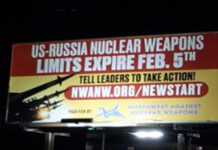
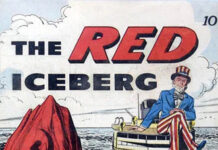

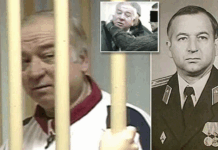
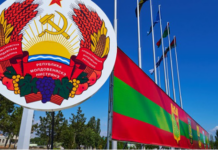
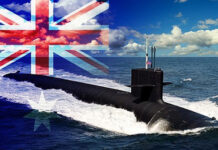




What “world” did the Soviet Union save in WWII? Certainly not Eastern Europe, which suffered under a regime every bit as brutal as the Nazis for 44 years after WWII. Certainly not Britain, which successfully fended off the Germans from well before Hitler invaded the USSR. Not Germany, which I am certain did not consider itself “saved” by the Soviet Union. France, the low countries, Denmark and Norway, maybe, but only if one assumes that the combined power of the U.S. and U.K. could not have liberated them without the distraction of the war in the East, an assertion which is by no means self-evident. The simple and hard truth is that the only country Soviet Union surely saved was itself, with very extensive aid from Britain and the U.S.. It ended up conquering virtually as much territory as the Nazis did at their height and ruling it just as ruthlessly for more than a generation afterwards. Lost before it was the victim of German aggression, The Soviet Union was its perpetrator, having successfully invaded Latvia, Lithuania, Estonia, Poland, Romania and (with partial success) Finland. Further, following the repulsion of the Germans, it expanded its conquests to Bulgaria, Hungary, Czechoslovakia and Eastern Germany. In short it was every bit as much of an aggressor in WWII as Germany, albeit a vastly more successful one. The world owes it nothing except a war crimes tribunal.
Uh-huh, new “research” based off “secret documents from archives”, and that singular “research” becomes the basis for entire western historiography. In Russia herself “secret documents” are a meme already, noone buys into this stuff anymore because of the sheer absurdity of claims produced. If we to believe “historians”, USSR was operating secretly, and only secretly, with each and every action being a state secret. You know, what those “historians” do? They just produce fakes! They’ve been doing it since 1917! It’s a well-researched topic – anticommunist fakes. Nazis were at the forefront of this stuff, by the way.
USA and british aid amounted to 4% of Soviet production. Given that 80% of nazis died on the Eastern Front, that basically means that american and british help was pretty bad quality. Just google up trench foot losses for the american troops on the Western Front. To top it off, majority of aid came after 1942-43 winter, Stalingrad, where USSR destroyed million large german (and allies) army and have captured Paulus, whom Hitler expected to commit suicide. As a revenge, Paulus ratted out all the nazi leadership on Nuremberg, earning them nooses and face-the-wall treatment. Stalin reported 7 million losses, 5.3 military and 1.7 civilian. Khruschev reported (through secret documents, obviously) 20 million DEMOGRAPHIC losses, meaning mainly unborn children. Revisionist historians in the 90s increased that to 27 million losses. Needless to say, Nuremberg trials operated on the 7 million Soviet losses claim, and UN in their statistics yearbook quoted Stalin’s number. “Manpower to spare” is an anticommunist myth. In 1937-38, Stalin gulagged organizers of a population census for falsifying the data – they “murdered” this way 2 million Soviet citizens during the famine of 1932-33. Khruschev rehabilitated those people and put them back in charge of the 1958 population census – which gave Soviets 27 million losses. from 1941 to 1945. However, if one to analyze employment figures, education, housing, etc etc of that census you won’t notice such a sharp drop of more than 10% of Soviet population. Comparing that to Poland – which lost like 25% of population – you’ll notice such a drop for Polish.
All of this is a concerted effort by the american propaganda machine to usurp Soviet victory over Nazi Germany.
Here is a nice you tube video of Robyn Dixon in the link below
https://www.youtube.com/watch?v=YABxTjhf9VQ
[…] Washington Post Moscow Bureau Chief Distorts History of World War II […]
Robyn Dixon also has some good achievements:
Honors & Awards:
2016: Winner of the Overseas Press Club Madeline Dane Ross Award for international reporting on the human condition
2016: Reporting fellow, International Women’s Media Foundation
2016: Anchored the Los Angeles Times story, “Diary of Terror,” that was awarded an Associated Press Media Editors award in the Sally Jacobsen International Perspective category, as well as a citation for storytelling from the APME
2009: Winner of the Daniel Pearl Award for courage and integrity in reporting
2009: Awarded the Batten Medal by the American Society of Newspaper Editors, recognizing “compassion, courage, humanity and a deep concern for the underdog”
2008: Citation by the Overseas Press Club in relation to the Joe and Laurie Dine award for international reporting dealing with human rights
2008: Winner of the Robert F. Kennedy award for international reporting on human rights, social justice or the power of individual action
2007: Winner of the Society of Professional Journalists’ Sigma Delta Chi award for international reporting.
Languages spoken in addition to English: Russian, French
I have been enjoying the articles recently on Covert Magazine. However, as a military historian myself who has begin studying this aspect of the war, this article appears to promote the candy-coated story regarding Soviet Russia winning WWII by defeating the Nazi enemy that wanted to enslave them all.
This line of historical thought has been increasingly questioned since the 1990s. Viktor Suvorov, a former Russian intelligence analyst, was the first to break this controversy wide open with his first publication on the subject in 2012, “Ice Breaker”, which was later followed with a more concise history, “The Chief Culprit”.
Going by a single author on such an issue can be a stretch for many military historians but corroborating evidence began to appear that basically supported Suvorov’s treatise that Stalin had every intention of attacking Germany first and then rolling up the rest of Western Europe, despite the treaty that both Germany and the USSR had entered into. Suvorov’s works have been researched enough that even elite universities such as St. Johns University in New York are teaching this material to new students of Russian military history.
The result is then an old theory that is getting new life in the guise that The Third Reich attacked the USSR as a pre-emptive strike due to intelligence that it had received regarding the staging of Soviet Forces on The Reich’s eastern borders in a deployment that signaled an invasion of Reich territory.
Of course this cannot be possibly true as The Third Reich was evil incarnate but be that as it may, this theory of a pre-emptive strike is gaining steam as historians are able to dig deeper into more recently released materials on the subject.
Such research includes writings on FDR and his admiration of Stalin, which is corroborated by research demonstrating how he surrounded himself with pro-Soviet advisors with some claiming that FDR had simply become a puppet for such people. This latter claim is backed up by writings by FDR’s own grandson whereby he states in his own writings how is grandfather was severely manipulated by such people. This toxic combination gave rise to the US Lend-Lease program to the USSR, which John Mosier demonstrates in his 2010 publication of “Death Ride” was a primary factor in Soviet capabilities to defeat superior German Forces; the Soviets had the manpower to expend, which they did and the material as a result of the Lend-Lease program to support the manpower.
Even so, such materials can be taken simply as revisionist history that act as apologists for The Third Reich. And this could have remained true if Sean McMeekin hadn’t just published his in depth history on the Eastern Front, “Stalin’s War”, which takes a new and in depth look at this theater of WWII with new research done in newly released archival materials.
McMeekin’s book is the first truly, mainstream publication on this subject and corroborates both Suvorov’s and Mosier’s treatises to varying extents and has been very well received. As a result, I am quite sure new histories will be published supporting what McMeekin has already found.
Of course, historians can criticize McMeekin’s new work but one would have to be careful with accepting such critiques as the propaganda that came out before, during, and after WWII is increasingly coming to be seen as a total distortion of actual history. Newer and fresher studies are being released that demonstrate that the entire history of WWII, from the Holocaust to the overall conflict itself need to be re-examined very carefully since so much has been promoted as accurate history when a lot of it wasn’t.
Even a number of jurists at the time spoke out against the famed Nuremberg Trails as being nothing more than show trials that conjured up law that was created for public spectacle and were against all US Constitutional norms. Further, the Nuremberg Trials were instigated by Stalin while Churchill just wanted to have The Third Reich leadership shot on the spot.
But most importantly, one has to question the level of demonization regarding The Third Reich in the West. It was at the same level as that of the Israeli demonization of the Palestinian People, which increasingly in recent years has been shown to be nothing but a pack of lies. So too was the demonization of The Third Reich.
However, to truly understand this, one must study the diplomatic histories that followed 1919 up through 1939. Such histories are not popular in the United States and the lack of publications on the subject demonstrates this. This is because such histories, which I have in fact studied, provide a completely different view of The Third Reich and places the blame for starting WWII squarely on the shoulders of the foolhardy leadership in Britain who insisted on playing balance-of-power politics on the European continent as they had been doing for centuries. Such studies are regaled as merely revisionist history but they do not come across as such. David Hoggan’s fascinating but difficult to read study of this period of time, “The Forced War” (which is still available) should dispel any doubts about such material being simply made up for apologists for The Third Reich. Such detail is quite difficult to conjure up on one’s own.
But one can only understand this if they take the time to read such studies. Unfortunately, most Americans will not…
How much for a Nazi apoligist comment these days?
I would imagine about the same as for a Stalinist stooge.
Britain did not cause Hitler to invade Czechoslovakia or Poland, nor France for that matter, which brought on its own defeat by declaring war on Germany on its own initiative, nor Denmark or the Low Countries or Norway. Britain could have avoided involvement in WWII by staying out of it, but there was nothing it could have done to prevent the many act of aggression of Hitler (or Stalin).